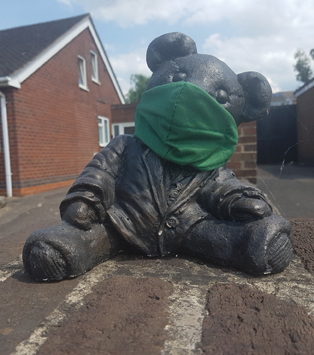Prime Minister Boris Johnson has announced a second national lockdown for England, including pubs closing, from Thursday, November 5.
Chair of the Association of Police and Crime Commissioners (APCC) Paddy Tipping, PCC for Nottinghamshire, said that the new lockdown applies including to areas like the south west, where coronavirus incidents are low, and acknowledged the impact on people’s movements, mental health, finances and wellbeing, particularly in the run-up to Christmas. “But it is imperative that we all work together to get through this – that we show compassion and respect for each other and support local authorities and police officers, who will continue to engage, explain, and encourage people to do the right thing before taking enforcement action.
“The APCC will continue to work closely with the NPCC [National Police Chiefs’ Council] and the Home Office in developing guidance for police officers and PCCs will continue to work alongside fellow local leaders to ensure all partners work together to keep communities safe. We will also consider the implications that the new lockdown will have on Remembrance Sunday, where large numbers of people may still wish to show their traditional respects.
“This year continues to be difficult and challenging. We all have a part in making sure everyone can enjoy a safe Christmas and hopefully a better New Year.”
Nottinghamshire has seen a 37 per cent rise in referrals to the National Referral Mechanism (NRM) – the UK’s support for potential victims – compared with the same period last year. After police dispersed Nottingham city centre student parties at the weekend, Nottinghamshire Police Chief Constable Craig Guildford said: “It’s quite unbelievable how some people are completely ignoring the fact that people are dying and the NHS is already so stretched with cancer treatment being halted because of the continued spread of Covid-19. The only way to get this under control is by everyone in the community sticking to the legislation and taking responsibility.”
Mr Guildford acknowledged that both the universities in Nottingham had been trying to help get the message across to students ‘but for some it doesn’t seem to be getting through’.
Under the second lockdown, schools and universities will remain open.
The Metropolitan Police likewise has said that it will continue to take robust action against those who breach the law and take part in illegal gatherings of any kind. Among breaches of social distancing on Saturday night, the Met reported that around 1,000 people attended an unlicensed music event at Naval Row, E14. Seven people were arrested under coronavirus regulations.
Like other forces, the Met has asked the public to report even serious breaches via the 101 telephone system or online; that is, not via the 999 emergency line.
As for enforcement elsewhere, the latest figures from the NPCC cover Coronavirus Regulations between Friday, March 27, and Monday, October 19; in England some 17,451 fines; not including those issued under International Travel Quarantine, Self-Isolation, Alert Level or Face Covering Regulations. A mere 258 FPNs (fixed penalty notices) were issued between June 15 (when non-essential travel was allowing after the spring lockdown, provided a face covering was worn) and October 19, for breaches of the Face Coverings Regulations in England and Wales. And to October 19 under the International Travel Regulations, some 125 FPNs were issued by police to those failing to self-isolate after arriving in England from a country on the UK Government Quarantine list; compared with 380 cases when officers attended an address only to find that nobody with the relevant name lived there (so no further enforcement action), and 629 cases of no answer when officers attended (again, no further enforcement action).
NPCC chair Martin Hewitt said that he remained ‘extremely concerned’ at the rise in assaults against emergency service workers, who are working to save lives, help the public and serve their communities. “We will not hesitate to prosecute anyone who uses violence against front-line staff.”
For an example of assaults on police visit the Nottinghamshire Police website.
Mr Hewitt spoke of a police shift towards’ quicker enforcement’ against those knowingly breaking the rules, admitting that a ‘small minority’ are not following the rules. “Where people don’t listen to police officers’ encouragement then we will take action. That is our job and I believe the public expect us to do that.”
As throughout the pandemic, the police stress that they can only ‘play their part’; and that enforcement doesn’t and shouldn’t always equal police involvement; quite the opposite, for police admit they enforce only as a last resort, and that they are not called in the vast majority of cases. Individuals, businesses and a range of agencies all have a responsibility to ensure the virus is suppressed, police say.
As for volume crime, the NPCC continues not to say anything about fraud, although since it has been covered in the official ONS‘ British crime survey, it is the country’s most occurring crime. The NPCC says that fraud is recorded by centrally by the reporting service Action Fraud; and the Action Fraud website ever since lockdown in March has said that its contact centre is ‘providing a reduced service’.
Among scams are people pretending to be police officers, to defraud the elderly and vulnerable.










